Vietnam’s startup initiative inspires
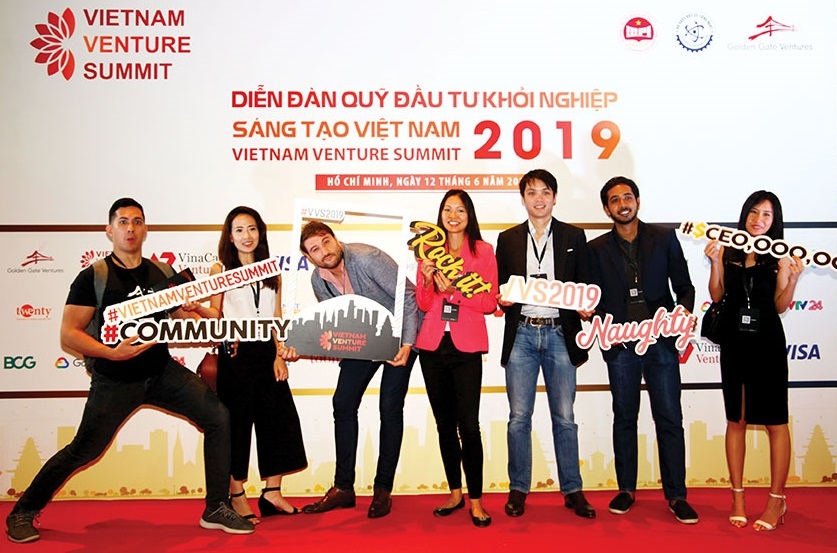 |
| With their great passion, many young people in Vietnam are turning their novel ideas into startups, which have attracted the eye of foreign investors |
The seven-storey building of the Ministry of Science and Technology’s (MoST) National Agency for Science and Technology Information, located at the end of Hanoi’s Ly Thuong Kiet street, is a shabby-looking building which has not been renovated for years. However, on the top floor sits a large incubator for local startups. This location was the first headquarters for Can Thi Thanh Hien’s Fresh Deli startup, which was established in 2016. Fresh Deli uses an app to connect itself with housewives and customers to provide lunch portions.
“We make different menus and send them to housewives, who will prepare fresh materials to cook fresh lunch portions according to the menus. Then our staff will directly deliver the portions to customers,” Hien told VIR. “We pay housewives for their work.”
Fresh Deli received $20,000 from the Vietnam Silicon Valley Accelerator (VSVA), which is implementing the Vietnam Silicon Valley (VSV) project initiated by the government and the MoST.
When Hien was a student, she thought about establishing a business to provide fresh lunch portions to office employees via the use of software.
Then Hien and her friend decided to establish Fresh Deli. Currently the Fresh Deli app has about 7,000 users, 15 cooks, and a host of delivery drivers. Its monthly revenue is VND300 million ($13,050).
Pham Ngoc Huy, accelerator programme manager of the VSVA told VIR that Fresh Deli is just one of more than 80 startups that the VSV has successfully invested into since the VSVA was established in 2014, operating in many sectors, such as IT, logistics, and food.
The VSV seeks to create an ecosystem of innovations and technology commercialisation by combining the Vietnamese entrepreneurial spirit and innovative nature with the most successful practices from the US.
Every year the VSV raises funds from local and South Korean angel investors to finance a batch of early stage startups in Vietnam, with each batch consisting of 10-15 businesses. Each receives $40,000 from the VSV, which retains 10 per cent of the startup’s stake.
In 2014, student Nguyen Hoang Trung and his five friends established Lozi.vn, which began as a food delivery service. After 12 months, the service had attracted 200,000 users, while website traffic reached over two million.
Lozi.vn received a VSV investment of $10,000, a figure which matches the website’s current monthly revenue, and in 2015 inked a $500,000 venture capital agreement with Singapore’s Golden Gate Ventures and Japan’s DesignOne Japan, which both value the service at $2 million.
Elsewhere, IT engineer Phung Khac Huy established Ship 60, which provides logistics software. Since the VSV backed them to the tune of $10,000 in 2015, Ship 60 has witnessed double-digit growth, and replaced Ahamove as Lazada’s exclusive goods provider.
In another case, at the World Economic Forum (WEF) on ASEAN in late 2018, Hachi Vietnam was one of several Vietnamese firms included in the list of the 80 most creative startups, as selected by the WEF. Hachi, an agricultural startup, uses sensors and a hydroponic system to grow clean vegetables, which has led to a 300 per cent rise in productivity. Currently Hachi has several vegetable farms employing over 100 farmers.
The other Vietnamese startups listed by the WEF included BrandBeats Music Marketing with founder Le Tan Thanh Thinh, Logivan Technologies Pte. Ltd. with its founder David Salt, and Rynan Smart Fertilizers JSC with its founder Nguyen My.
“Everyone is talking about startups now, and many people are trying to do something as a startup,” Dang Xuan Truong, founder and CEO of Hachi Vietnam, told VIR. “Not only startups’ development, many funds are also paying attention to investing into startups.”
For example, For example, Singapore-based KK Fund – which invests out of a $50-million vehicle in startups across Southeast Asia – is looking to seal up to five new investments in Vietnam. KK Fund has invested an undisclosed amount in Vietnam-based healthcare startup Med247, which operates its own clinic and integrates its technology in helping patients manage their medical records and appointments with doctors. Med247 is the second Vietnam-based investment KK Fund has announced, following a $710,000 seed round the company led in recruitment startup Jobhop in late 2018.
According to pan-Asia consulting firm Dezan Shira & Associates, by late 2017 in Vietnam, 92 startups received investments worth $291 million, 42 per cent higher than 2016. Meanwhile, the number of startups rose by 45 per cent.
The number of deals soared from 50 in 2016 to 92 in 2017, with 61 per cent of the projects receiving investments of less than $1 million. Foreign investors engaged in 28 deals, while local investors held 64.
Major deals included Sea Group acquiring an 82 per cent stake in Foody for $64 million, and other startups for $50 million. In addition, JD.com invested $54 million in Tiki.vn.
In need of support
Hien from Fresh Deli told VIR she expects to mobilise more capital from local and foreign funds, worth about $80,000-$100,000. “In the near future, we will diversify our services to desserts and package-based lunches, and open a new website,” Hien said.
However, she pinpointed some challenges facing startups like hers. “Currently the legal procedures for establishing startups remain vague. Often, procedures need to be repeated several times due to unclear regulations,” she noted.
Hien suggested that in addition to the VSV, the government should establish its own startup-oriented funds.
“If the government wishes to develop a domestic startup eco-system, it should pay more attention to the development of startups,” she said.
According to Justin Wood, head of Regional Agenda for Asia Pacific at the WEF, Vietnam’s efforts to develop its startups remain in some difficulties.
“I think there are many things that startups find difficult. Capital is critically important and it’s always a challenge for startups. This is true no matter what country you’re looking at and it’s true here in Vietnam,” he said. “Technology is always an issue for a company, but if you look at the fundamental technology landscape in Vietnam, it’s getting better. The WEF does assess the readiness of a country in terms of embracing the Fourth Industrial Revolution. And certainly there are weaknesses here in Vietnam.”
| NGUYEN CHI DUNG - Minister of Planning and Investment
The Ministry of Planning and Investment (MPI) has had close co-operation with ministries, agencies, and Hanoi’s government in handling activities to drive up innovation spirit, focusing on three key action programmes. The first relates to unblocking investment capital sources to facilitate startup innovation. The Vietnam Venture Summit held in June marked an important milestone as 18 domestic and international investment funds committed to invest $425 million for Vietnamese startups towards 2021. The second relates to accelerating development of high-quality human resources. Last year, the MPI joined with other ministries, and localities to establish the Vietnam Innovation Network in a bid to call on tech experts and Vietnamese intellectuals from around the world to come back home to cultivate innovation capacity for Vietnam. Third, having in place a complete ecosystem for innovative reforms and startups is the prime goal, and the MPI is taking action via the establishment of the National Innovation Centre. It will contribute to perfecting the innovation and startup ecosystem, and stimulating the city’s young generation. Paul Papadimitriou - CEO and founder Intelligencr
I travel all around the world to work with a variety of clients, from startups and corporations to public institutions, helping them make sense of the present in order to be able to prepare for the future. I have been helping many startups directly to assist them overcome the challenges on their journeys, and scale up to their true potential. When it comes to the local ecosystem, I am happy to see involvement from the government – it gives a feeling of long-term commitment, one of the key elements to sustain the successful development of the ecosystem. Entrepreneurs take risks, and having a feeling of support helps trigger more entrepreneurs to attempt the journey. It becomes a movement and a virtuous cycle. Investors also take risks and to attract more of them. It is important to have a solid and favourable financial system. The regulations have to be easy and fair. In the end, the movement of ideas via the meeting of people is what matters – an ecosystem lives by its people, so the more opportunities to meet, to exchange, to collaborate, the better. Raghavender R. Ganti - Sales leader Dassault Systèmes
We chose Vietnam as a destination because of the young population and the growing economy. The country has a talented force that could come in handy. They need tools to sustain that growth, and that is where we come in. We do not have a direct office in Vietnam yet. We rely on our partners here who speak the language and can respond faster. That is one of the key things. We have quite a few partners, not just in Hanoi but also in Ho Chi Minh City as part of our big partnership ecosystem in the ASEAN because partners are very important for us. The government is very supportive, and the private sector is also willing to invest as long as it is the right solution for them, and we look not only to sell our products, we want to provide the right solutions. I think there should be more emphasis on creativity starting from school. Most of the time when we talk to students, the emphasis is on technical skills but there should also be a good emphasis on emerging fields of science like Artificial Intelligence and machine learning. If people do not have creativity, they cannot fully utilise these new solutions. Jean-Claude Charlet - Co-founder and CEO Schoolab
Vietnam is very attractive because it is a young and booming country, and it is so exciting to work here because there is lots of energy, probably more than in any other country in the area. The pace of development initiatives and ability to execute things is rapid, and we believe in the entrepreneurial DNA of Vietnamese people. We started a small team about a year ago based in Ho Chi Minh City and tried to analyse the market. Now we are quite convinced that we need to develop in this country and, by 2020, we are going to invest more in people, in both Hanoi and Ho Chi Minh City. We also need to develop relationships with corporations, which we aim to do next year in order to develop our business model and ambitions of sustainable development. On government policies, the main point is to give confidence to people from outside the country as many investors may be a bit confused about not knowing exactly what is going on behind the scenes. Generally, they need some more transparency, and they need assurances that the investment climate is stable and welcoming for foreigners. Kamran Elahian - Founder and chairman, Global Innovation Catalyst
I am the chairman of Global Innovation Catalyst. We aim to create 10 million innovation jobs in 40 countries in Africa, the Middle East, Southeast Asia, and Central Asia. Vietnam plays a big role as it has a large number of young people who will be creating the jobs of the future. This is my second trip to Vietnam. Several years ago, I came to attend an APEC Meeting in Ho Chi Minh City. Now is my pleasure and honour to be here in Hanoi where I met a lot of nice people, young companies, and startups. Young people are very keen on the innovation economy, which is very different than the knowledge economy. The innovation economy is about how you take an idea and implement or execute it. It requires a lot of skills for collaboration, for execution, and is about the disruption of existing businesses – the way Amazon disrupted bookstores by beginning to sell books digitally or Grab and Uber disrupted the taxi business. In the innovation economy the edge comes from the ability to collaborate with people, learn how to attract them to help you, to execute a proper strategy that makes sense for Vietnam. Young people are able to come up with new ideas and make the necessary changes. As Vietnam has a lot of good technology people, it has a bright future in innovation economy, because a big part is accepting and initiating changes. It is very nice to see such high commitment from the Vietnamese government. However, there are a number of things that need to be done to make the country more appealing to the investor community. A country that wants to build out an innovation economy needs to create incubators and co-working places. I saw Vietnam has such incubators in Hanoi and Ho Chi Minh City, but it is also necessary for the government to provide small sums of money not as grants but as investments for many young companies so that young people can learn how to develop something, to execute their ideas because an idea in itself does not have much value – it needs to be executed as well. Adam Ward - Vietnam country representative, GGGI
“GGGI is an intergovernmental organisation working to deliver green growth across the globe. Vietnam joined GGGI in 2012, and we currently have 33 member countries. Vietnam has made a strong commitment towards green growth. We signed a five-year country strategy with the Ministry of Planning and Investment (MPI) until 2020 to work on green investment, green cities, renewable energy, and energy efficiency. For our cities work we’ve identified municipal waste-to-energy as a key priority. We currently have a $60 million project in BacNinh and will process 500 tonnes a day and generate 10MW of electricity. This project is a partnership with a local developer, the provincial government, and the government of Finland. It will use the latest Finnish technology to take the municipal trash and recycle it, and then burn what is left in an environmentally friendly way to generate energy. I believe this is the future of waste management in Vietnam. For our future plans, we are looking to support the roll-out of waste-to-energy across the country and to design and launch a facility for solar rooftop. This facility will blend international sources of climate financing with domestic capital. We will also work with the MPI in the future to examine investments at the provincial level and markthem for green investment, showing green investment flows where there are gaps and where future priorities should be.” Barbara Guerpillon - Director, Unilever Foundry Asia
Unilever Foundry is the platform that connects startupswith Unilever and vice versa. Unilever Foundry has only recently entered Vietnam and is still trying to understand the ecosystem here. I come here to evaluate the attractiveness of the market in general and the startup market in particular, to find the key players in the ecosystem and learn how strong startups really are. We are looking at the market very seriously. We see lots of startups in retail digitalisation. It’s a trend that we also see in markets like Indonesia and Thailand. I will return to Ho Chi Minh City and meet with Unilever in Vietnam and try to listen to their objectives. I think we can fill the gap with technology. The next step is to understand the needs of both Unilever and startupsand see howwe can leverage the startup ecosystem here in Vietnam. What we do is giving an opportunity for startups to pilot their technology and services with our brands. We basically help both the business and startups to get pilot projects off the ground and facilitate communications between big corporations and startups. Selena Le - Founder and CEO, No Waste Vietnam
Our organisation is focused on tackling plastic waste, climate change, and sustainable development issues. Our operation covers diverse localities in Vietnam as well as in many countries calling on domestic and global business groups and organisations to reduce their high emissions rates. As Vietnam is one of the countries hit most severely by climate change, our prime goal is to stimulate and inspire others to joining hands on saving the environment by achieving sustainable development. In this regard, the Vietnamese government has been taking strong action, but more is required to bring the situation under control. The emergence of new economic models, and changing consumers’ behaviours prove a big challenge, alongside dealing with mounting waste volumes. Our organisation has charge-free mentor programmes to support environmental startups. Many startups are showing keen interest in this field. Therefore, I trust if we have in place a well-conceived investment trajectory from the part of the state, businesses, and associations, many outstanding environment solutions could be introduced, generating significant income for the economy. The environment is a constituent economic foundation, so it must be solid. There are enormous investment opportunities in the environment field not only in Vietnam, but also across the globe. Domestically, we have spent hefty sums on programmes to cope with and to adapt to climate change.This sum is larger than any product investment we have made. When businesses or startups jump into the field, they should take it as a business and think of creating the best products to resolve environmental issues which will in turn help them to mitigate damage and save costs. Martin Kim - Director, Shinhan Future’s Lab Vietnam
Open innovation is quite a new trend in the Vietnamese startup ecosystem, allowing startups to grow faster than through common programmes. Vietnam has huge potential, with thousands of brilliant startups and entrepreneurs we would like to work with and grow together. When we launched Shinhan Futures Lab Vietnam, we didn’t understand the market or have a proper network, but many experts, partners, and other players in the ecosystem helped us. They listened to what we would like to do, how we can commit to the ecosystem, and helped us grow. Shinhan Futures Vietnam was kind of like a startup, but we grew up because the ecosystem worked with us – and it is time we contribute to other startups. The Vietnamese ecosystem is full of incredible energy, with everybody encouraging startups and innovation, and corporations like us would love to participate. There should be no separation between major corporations and startups – we can all grow together. |
What the stars mean:
★ Poor ★ ★ Promising ★★★ Good ★★★★ Very good ★★★★★ Exceptional
 Tag:
Tag:
Related Contents
Latest News
More News
- State corporations poised to drive 2026 growth (February 03, 2026 | 13:58)
- Why high-tech talent will define Vietnam’s growth (February 02, 2026 | 10:47)
- FMCG resilience amid varying storms (February 02, 2026 | 10:00)
- Customs reforms strengthen business confidence, support trade growth (February 01, 2026 | 08:20)
- Vietnam and US to launch sixth trade negotiation round (January 30, 2026 | 15:19)
- Digital publishing emerges as key growth driver in Vietnam (January 30, 2026 | 10:59)
- EVN signs key contract for Tri An hydropower expansion (January 30, 2026 | 10:57)
- Vietnam to lead trade growth in ASEAN (January 29, 2026 | 15:08)
- Carlsberg Vietnam delivers Lunar New Year support in central region (January 28, 2026 | 17:19)
- TikTok penalised $35,000 in Vietnam for consumer protection violations (January 28, 2026 | 17:15)

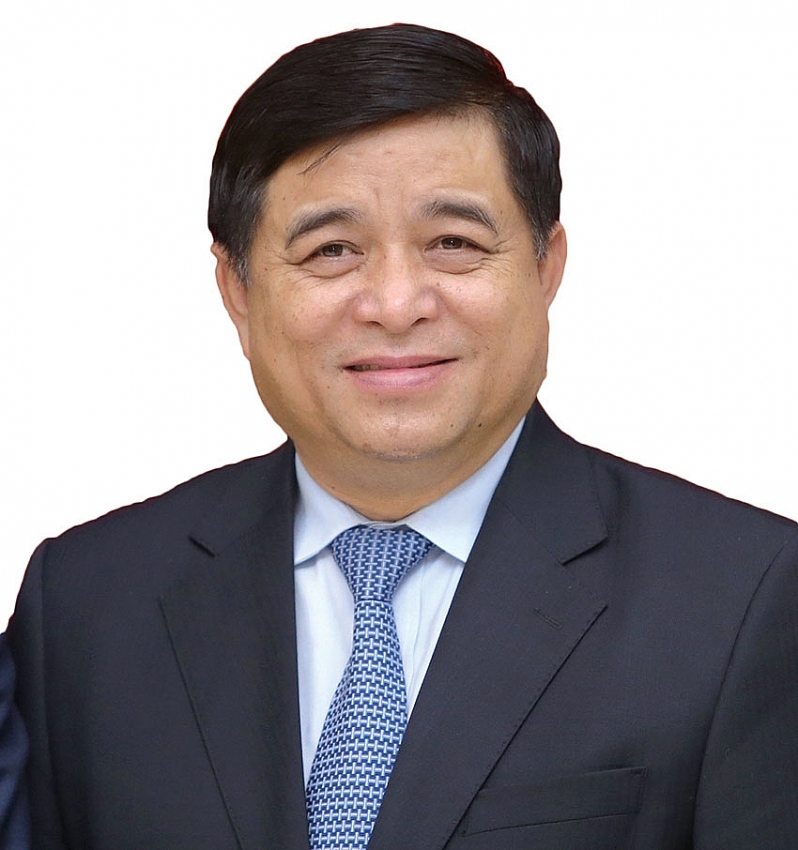
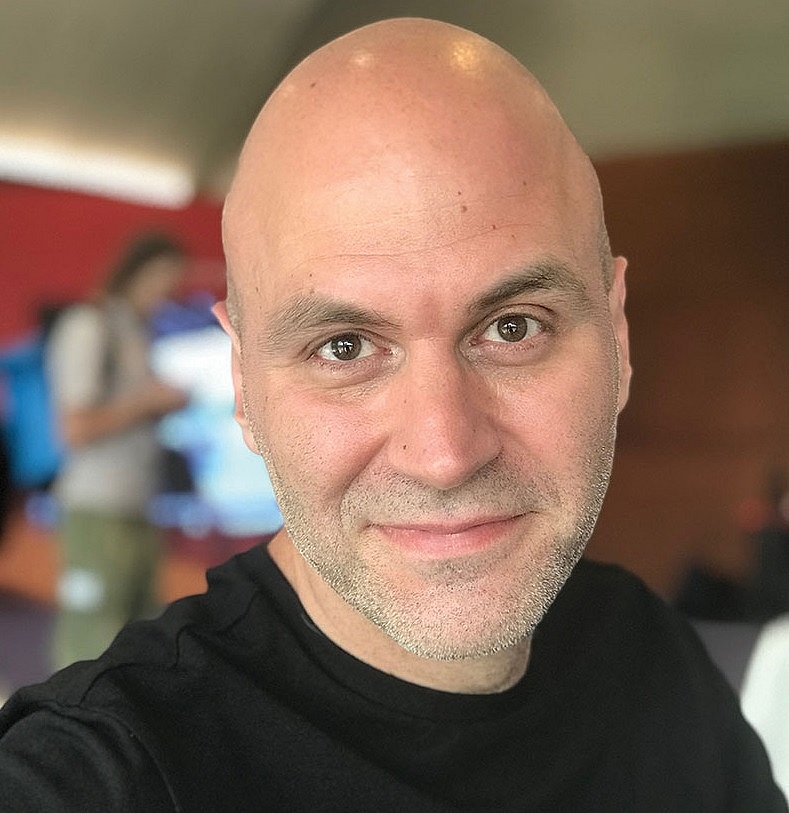
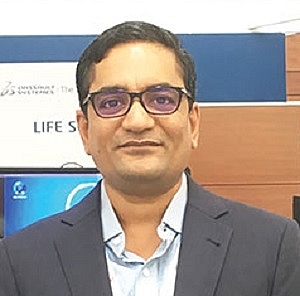
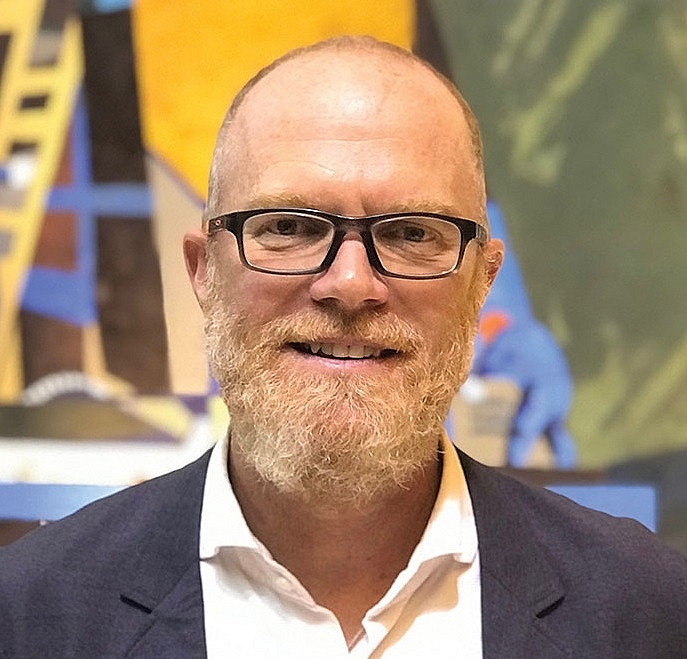
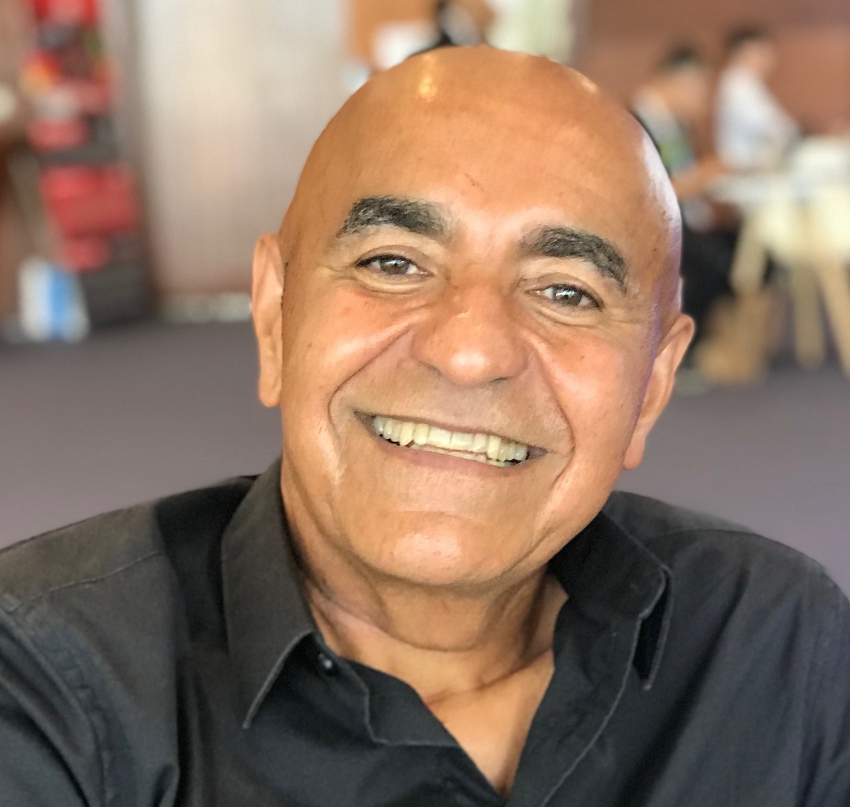
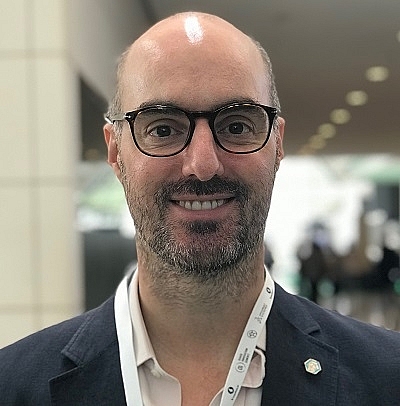
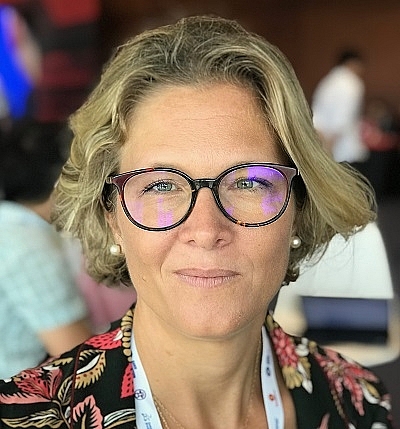

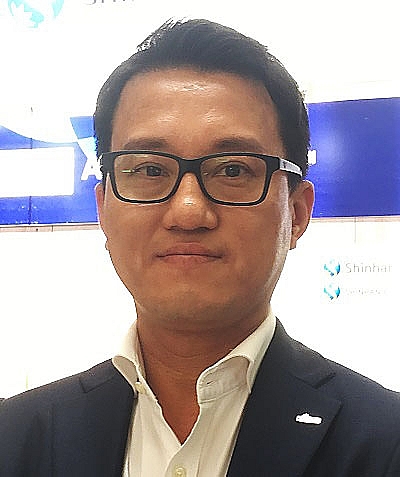





















 Mobile Version
Mobile Version